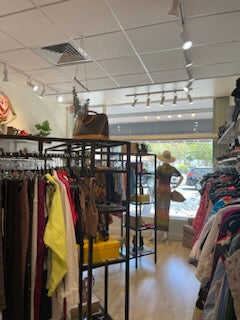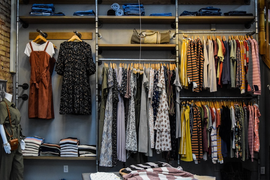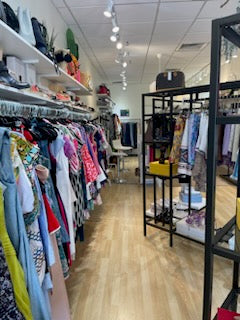In the world of fashion, there's a growing movement towards sustainability, and consignment stores have become a hotbed for fashion enthusiasts seeking quality and eco-friendly options. While thrift stores have been a longtime favorite for budget-conscious shoppers and vintage aficionados, consignment stores have started to gain popularity as well. In this article, we'll explore how shopping at a consignment store can be remarkably similar to shopping at a thrift store.
- Treasure Hunt Atmosphere:
One of the key similarities between consignment and thrift stores is the treasure hunt experience they both offer. You never know what hidden gems you might stumble upon, whether it's a designer piece or a unique vintage find. The thrill of discovery is undoubtedly a shared aspect that attracts shoppers to both types of stores.
- Affordable Prices:
Consignment stores, like thrift stores, offer budget-friendly options for fashion lovers. The difference lies in the pricing structure. In thrift stores, items are often priced significantly lower, reflecting their pre-owned and sometimes well-loved status. Consignment stores, on the other hand, tend to price their items a bit higher since they curate and maintain the quality of their merchandise. However, you can still find great deals on high-end brands and gently-worn clothing, making consignment stores a budget-friendly alternative to traditional retail.
- Unique Selection:
Both consignment and thrift stores offer a wide range of clothing items, including vintage pieces, trendy finds, and classic staples. If you're looking to stand out with a unique style, you can often find one-of-a-kind pieces in both types of stores. Whether it's a designer silk blouse or a pair of statement shoes, the selection in consignment stores can be just as diverse and interesting as in thrift shops.
- Sustainable Shopping:
Both consignment and thrift shopping contribute to sustainable fashion practices. By choosing pre-owned items, you're extending the lifecycle of clothing and reducing the demand for new production. This helps in reducing the fashion industry's overall carbon footprint and the accumulation of textile waste.
- Quality Assurance:
While thrift stores may have a reputation for being a bit hit or miss in terms of quality, consignment stores typically maintain higher standards. They carefully select and curate the items they accept, ensuring that the clothing is in good condition and of higher quality. This means that when you shop at a consignment store, you can expect cleaner, better-maintained clothing compared to some thrift shops.
- Supporting Local Businesses:
Consignment stores often operate as small local businesses, and by shopping there, you're supporting your local economy. This is another way to make a positive impact on your community while indulging in your love for fashion.
In summary, while consignment stores and thrift stores share some similarities, such as affordability, unique finds, and sustainability, they also have their differences. Consignment stores often provide a more curated and quality-focused shopping experience, making them a fantastic option for those who want pre-owned fashion items with a bit more assurance of condition and style. However, the thrill of treasure hunting and the potential for budget-friendly finds are aspects that both types of stores offer. So, whether you're a dedicated thrifter or new to consignment shopping, both options can satisfy your fashion cravings and align with your sustainability goals.




